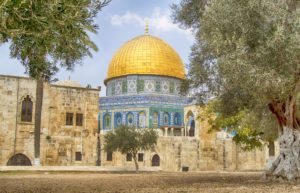
Share this Blog
Share
Lessons from Isra' wal-Mi'raj
Lessons from Isra' wal-Mi'raj
Commentary
In the tenth year of prophethood, the Prophet (ﷺ) faced a rapid series of misfortunes. His uncle Abu Talib passes away without accepting Islam and only two months after the death of his uncle, his first wife, Khadijah (RA) passes away as well. This year was know as the “year of grief”. After these misfortunes, Allah (SWT) called The Prophet (ﷺ) past the heavens and he was shown many wonders and miracles. The above verse highlights Allah’s promise that every hardship is followed with ease.Ease After Hardship
Sayyidna Hasan Al-Basri (رح) reports that once the Holy Prophet ﷺ emerged from his home in a very happy mood and, giving cheerful news to his Companions on the basis of the current verse, said: “One hardship cannot overcome twofold ease”. Thus history and biographical books written by Muslims and non-Muslims – all bear ample testimony to fact that the most difficult task, even the seemingly impossible task, became easy for him. The above narration further indicates that the Arabic definite article al- signifies that it is an article used to indicate previous knowledge [ that is, al- lil ` ahd ] and refers to the hardship of the Holy Prophet ﷺ and his Companions. Allah kept to His promise to them in such a way that the world saw it visibly how in the wake of every hardship the Holy Prophet and his Companions experienced the manifold ease that made their task easy. If a person does not achieve ‘ease’ after ‘hardship’, it does not contradict this verse. In fact, even now Allah’s universal principle applies. One needs to exercise fortitude against hardship, rely on Allah with purity of heart, devote oneself totally to Him, hold onto high hopes for His grace, and one should not despair of His mercy if there is delay in success – He certainly will grant relief after every instance of hardship. [ Fawa’id-e-` Usmaniah ]. Hadith narratives support this.وَلَسَوْفَ يُعْطِيكَ رَبُّكَ فَتَرْضَىٰٓ
And ˹surely˺ your Lord will give so much to you that you will be pleased.
YOUR WEEKLY DOSE OF
Share this Blog
Tuition Payment by Etransfer
Please send your etrasnfer in the full amount of your course tuition to
finances@ihsan.ca
IMPORTANT: The full name and email address you used to register for the course must be added as a note to the etrasnfer to assure the payment is applied to your account.